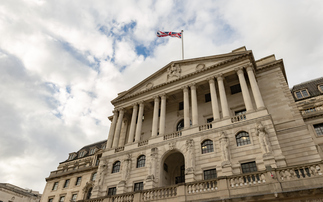
There has been no shortage of negative sentiment towards the UK equity market given the scale of fiscal consolidation the government is about to undertake, with potential tax rises alongside spending cuts. This is settling on around £40bn – the ‘fiscal black hole' – subject to the extent of the Office for Budget Responsibility's productivity downgrades and the headroom that the Chancellor is aiming to rebuild. With open season on the potential kite-flying measures, we will try and cut through the noise with a checklist of what we should be assessing on the day.
Questions to answer
First, will this Budget, unlike the last one, avoid inflationary tax rises and cost hikes for businesses? Second, will this Budget meet spending rises with tax rises rather than increasing borrowing and greater levels of gilt issuance? Finally, are the tax rises credible and what will their impact be on economic growth?
Our current assumptions are that the Chancellor will avoid inflationary tax hikes and meet spending rises through taxes rather than additional gilt issuance. The jury is out on the final question; the bond market is dispassionate; it cares about outcomes/tax receipts not intentions/policies. The Chancellor's speech on 4 November suggested that she has the option to break the Labour manifesto and raise income tax which would raise the credibility of tax collection. The balance of probability is that this Budget will counterintuitively be good for the bond market and lower the cost of capital in the UK. This is a far cry from those predicting a Liz Truss-like bond market crisis.
Tax rises inevitably lead to weaker growth and estimates suggest a 0.4% impact on GDP. These will be spread over a few years with roughly a 0.2% hit to 2026 GDP. While this is deeply frustrating, a lower cost of capital tends to be an even more powerful force and the benefits should ultimately prove favourable to domestically focused mid-cap companies that offer highly attractive valuations and are much under-owned. Housebuilding and REITS look particularly attractive to us – they are discounting some form of negative fiscal event from the Chancellor. A Budget that was well received by the debt market could ironically lead to a rerating of these parts of the market.
Tax rises inevitably lead to weaker growth and estimates suggest a 0.4% impact on GDP. These will be spread over a few years with roughly a 0.2% hit to 2026 GDP. While this is deeply frustrating, a lower cost of capital tends to be an even more powerful force and the benefits should ultimately prove favourable to domestically focused mid-cap companies that offer highly attractive valuations and are much under-owned. Housebuilding and REITS look particularly attractive to us – they are discounting some form of negative fiscal event from the Chancellor. A Budget that was well received by the debt market could ironically lead to a rerating of these parts of the market.
UK backdrop
While the UK market has been cheap for some time it has really lacked any meaningful catalyst to sustain interest. However, the backdrop in the UK has quietly been changing for some time now. First, there has been a notable and steady increase in overseas buyers in the UK market, especially from American investors. Global investors are net buyers of UK equities so far in 2025.
Second, dare we breathe it, at the time of writing the UK market has outperformed the US market this year, in sterling terms.
Third, while growth continues to outperform in the US, the style that is gaining taction outside the US is value. Both geographically and stylistically, UK value is considerably more compelling than it has been in recent years. The Budget is a specific event that has thrown up particularly large opportunities in mid-caps and domestic shares that are trading at rare valuation multiples which we are looking to exploit.
Our approach
While the political noise and commentary is omnipresent, we feel the bigger picture is to look beyond that. We have put together a portfolio that, in our view, is cheaper than the market, offering better earnings growth, a superior return on invested capital (ROIC) and a stronger balance sheet than the market. We believe the negative sentiment of the Budget allows a fabulous stock-picking opportunity. Once the Budget angst has gone, the rerating opportunity is palatable.
Georgina Hamilton & George Godber, Fund Managers, Polar Capital UK Value Opportunities Fund

Important information: All opinions and estimates in this document constitute the best judgement of Polar Capital as of the date hereof, but are subject to change without notice, and do not necessarily represent the views of Polar Capital. Polar Capital is not rendering legal or accounting advice through this material; viewers should contact their legal and accounting professionals for such information. This document does not constitute a prospectus, offer, invitation or solicitation to buy or sell securities and is not intended to provide the sole basis for any evaluation of the securities or any other instruments, which may be discussed in it. This is not a financial promotion. Past performance is not indicative of future results. A list of all recommendations made within the immediately preceding 12 months is available upon request. This document is not a personal recommendation and you should consider whether you can rely upon any opinion or statement contained in this document without seeking further advice tailored for your own circumstances. This document is only made available to professional clients and eligible counterparties. Shares in the fund should only be purchased by professional investors. The law restricts distribution of this presentation in certain jurisdictions; therefore, persons into whose possession this presentation comes should inform themselves about and to observe, all applicable laws and regulations of any relevant jurisdiction. Issued by Polar Capital LLP and Polar Capital (Europe) SAS. Polar Capital LLP is authorised and regulated by the United Kingdom's Financial Conduct Authority ("FCA") and the United States' Securities and Exchange Commission ("SEC"). Registered address: 16 Palace Street, London SW1E 5JD. Polar Capital (Europe) SAS is authorised and regulated by France's Autorité des marchés financiers (AMF). Registered address: 18 Rue de Londres, Paris 75009, France.

















